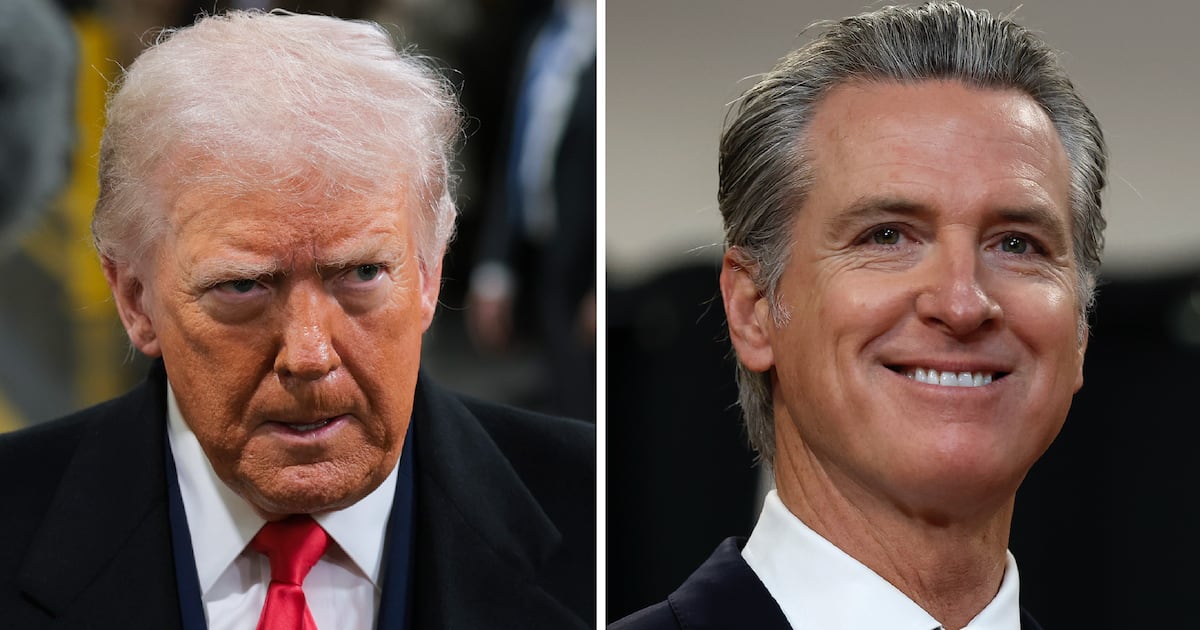In its final day of hearings on Obamacare on Wednesday, the Supreme Court examined the consequences of ruling the health-care legislation unconstitutional. MIT economist Jonathan Gruber, an architect of both Mitt Romney and Obama's bills, and the author of Health Care Reform: What It Is, Why It’s Necessary, How It Works, joined The Daily Beast for a live chat on Wednesday. How are the Supreme Court arguments going? How will the law affect ordinary Americans? Will it be struck down? Here are some of the best questions our readers posed.

1. What are your thoughts on how the arguments are going at Supreme Court?Going into the hearings I was very confident. Now I am less so. Almost all experts have said this was a very clear legal call in favor of the mandate, but the conservative justices appear to be taking a very libertarian stand in their questioning. I still think it will pass muster, but 5–4 at best.
2. Was Romneycare ever challenged by the state’s courts?There was never even serious consideration of a legal challenge—because, as most legal experts have said about the national case, there really are no substantive grounds to challenge the mandate.
3. What are the major differences between Romney’s and Obama’s plans?They are the same bleeping bill! More seriously, the core of the ACA [Affordable Care Act] is exactly the same as what we did here in Massachusetts, which I like to call a “three-legged stool”: end discrimination in insurance markets, mandate insurance coverage, and subsidize that coverage for the poor. The federal law is then more ambitious because, unlike in Mass., it takes on cost control.
4. Can you explain what the government health plan will cost the individual if he/she makes $20K, 50K, 100K, 200K, or is a millionaire?Roughly speaking, most folks won’t be affected. The winners will be those who are low income or in poor health. The losers will be those few individuals who are in excellent health and non-poor, who might see their prices in the non–group market go up; and the very wealthiest, who will pay a new Medicare tax. But, for most Americans, you won’t really see a difference.
5. What are out-of-work Americans, who can only (barely) afford rent, food, and a car payment (or they’re lucky), supposed to do when they are sick and need to see a doctor multiple times?The bottom line is that the ACA approach is one where we redistribute toward those in need, but within a budget-conscious approach that makes individuals who can afford care pay for it. Basically, those who are below the average income in the U.S. either get free public insurance (if they are very poor) or get tax credits to offset the cost of private insurance, so that no one has to pay more than 9.5 percent of income for quality insurance. There is a mandate to buy, but that mandate has an affordability exemption so that no one is mandated if they have to pay more than 8 percent of income.
6. Why is health care so expensive in the U.S.? Does illegal immigration cause this?Illegal immigration has very little to do with it—most illegal immigrants use little health care. It is so expensive because (a) we pay higher prices for medical goods and services than the rest of the world, and (b) we treat patients much too intensively, wasting spending that doesn’t improve health.
7. Once this goes into effect in 2014, how long until we begin to see an impact? Why didn't the law go into effect immediately?We will see an impact right away, and it will fully phase in over three years. But we are already seeing some impacts—millions of 19- to 26-year-olds gaining coverage and millions of seniors paying less for drugs in the doughnut hole, for example. Given the time necessary to phase this in, there was no way it could have started more than one year earlier. The reason for 2014 versus 2013 is really about budget politics, unfortunately.
8. According to a CBS poll, 38 percent want the ACA entirely overturned, 29 percent want the mandate overturned, and only 26 percent want to keep the entire law. Why do you think this law is unpopular with the general public?Because it is so complicated. In today's political environment, anything that takes more than one sentence to explain can be defeated by a one-sentence lie. The opposition to this law is mostly not based on principled positions but rather largely on general opposition to the president.
9. What should I say to people who argue that Mass. health insurance is the most expensive in the country? That it was that way before? If so, why was it so expensive before?Yes, that’s exactly right. What matters is what has happened to the cost of health care in Mass. due to the law—and on that count, costs have grown at exactly the national average. The costs are high because we have both the highest-quality and the most expensive care in the country.
10. Is it true that the macro costs of health care will be lower under reform because providing the highest quality care is actually cheaper?No. Over the next decade, health-care spending will rise by a small amount—about 1 to 2 percent more than without reform. But what really matters is that in the longer run, this law can start to slow down the growth rate—which is the key to our long-run solvency.






